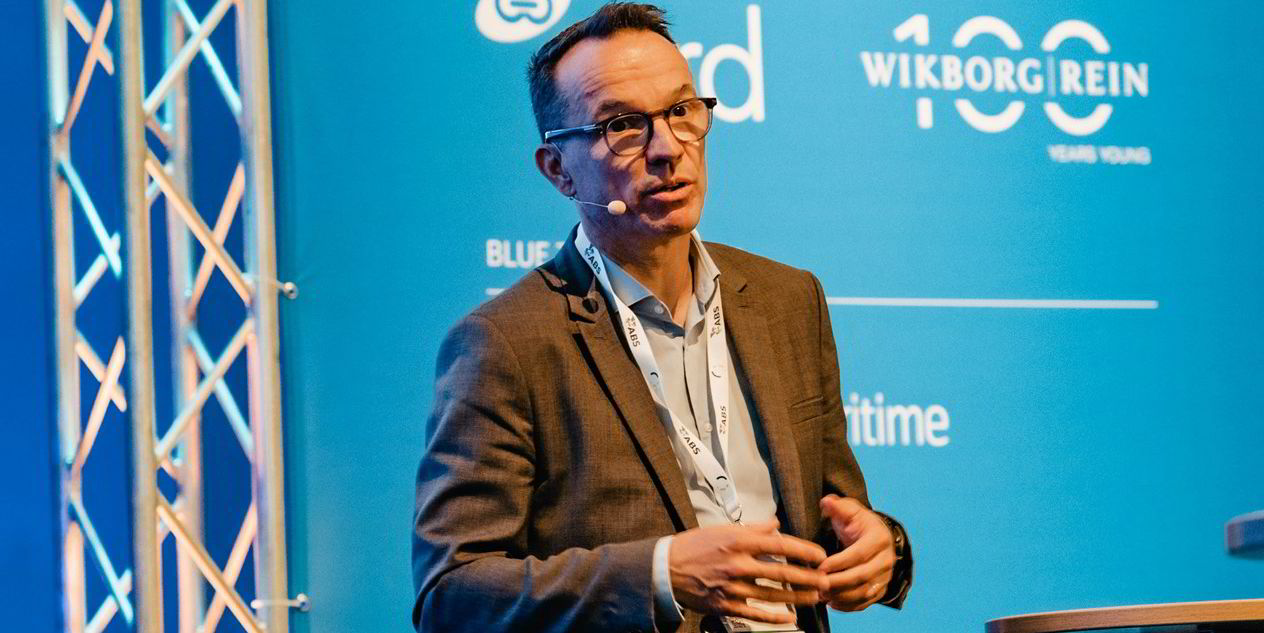Transmed Shipping chief executive Nicole Mylona believes retrofitting bulkers with energy-efficiency technologies makes financial sense, but she warns that such investments are not fully valued in the dry bulk sector.
The Greek shipowner, whose company controls a fleet of nine bulk carriers, told the recent TradeWinds Shipowners Forum Oslo that the investment case for such technology depends on how charterers see it and how it is reflected in a ship’s rating by RightShip, a company that provides safety and greenhouse gas scores for vessels.
Speaking during Nor-Shipping, Mylona said her company has invested in Mewis ducts and other energy-saving technologies.
“It does make sense,” she said of such investments.
“The problem is, the end result is not recognised in the way in which we all measure efficiency. We’ve got so many different regulations and so many different reporting standards. But actually what matters is what RightShip’s GHG rating reads, because that’s the only thing your charger will ever see.”
The comment reflects the growing cachet of RightShip’s greenhouse gas ratings in the dry bulk space, more than a decade after they were introduced in 2012.
Mylona said the measure is widely used by charterers, giving it too much weight in her view, and she would like to see the scores catch up with evolving greenhouse gas regulations.
RightShip’s ratings compare a ship’s theoretical greenhouse gas emissions against a peer group of vessels of similar size and type, resulting in a score ranging from A at the top and G at the bottom. The ratings are aligned with the International Maritime Organization’s Energy Efficiency Design Index, and an update of the ratings will include the Existing Vessel Design Index and the Energy Efficiency Existing Ship Index.
Bringing transparency
Asked about Mylona’s comments, RightShip chairman Jan Dieleman told TradeWinds that the company has been “extremely successful” in bringing transparency, first with its safety ratings and then with the greenhouse gas scores.
He acknowledged that when they first came out, the scores were not perfect but were nonetheless a good indicator.

But he said the ratings have evolved, and there is a process for shipowners to appeal over their rating.
“At the end of the day, we will always have people not happy if they are rated D, E or F, and I think that is just something that we need to deal with,” said Dieleman, who is also president of the ocean transportation division of agricultural giant Cargill.
Cargill is a shareholder in RightShip, alongside fellow chartering giants Rio Tinto and BHP.

“I think we are in a world [in which] transparency is going to get created,” Dieleman said.
“And we also know that with 38,000 ships on the water, you can always argue there are one or two cases where things are probably not 100% in line, but I think it should not stop us from creating a focus on the environmental footprint of ships.”
Read more
- Podcast: Are contracts the key to unlocking emissions cuts in shipping now?
- Cargill’s Dieleman on methanol fuelling piggybackers: ‘That’s exactly what we wanted’
- Cargill Ocean reports carbon dip driven by ‘more sluggish economic environment’
- Viewpoint: Why ammonia will accelerate autonomy, usher in a new safety era and reshape shipping


